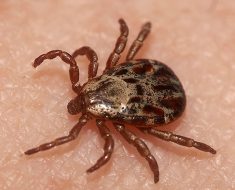
- Colorectal cancer might be linked to the gut microbiome, according to new research.
- Scientists say they might be able to predict the risk of colorectal cancer based on the composition of the gut microbiome.
- Colorectal cancer is the leading cause of cancer death in people younger than 50.
Researchers have identified differences in gut microbiome in people who develop precancerous colonic lesions, suggesting a possible connection between gut bacteria and colorectal cancer.
That’s according to a study presented at the 2023 annual meeting of United European Gastroenterology. The findings have not yet been published yet in a peer-reviewed journal.
The researchers used data from the Dutch microbiome project with the Dutch nationwide pathology database to identify recorded 8,208 cases of colonic biopsies over the past 50 years.
The scientists analyzed the function and composition of the gut microbiome of people with precancerous colorectal lesions between 2000 and 2015 and those who developed lesions after fecal sampling between 2015 and 2022.
They then compared these groups to people with non-cancerous colonoscopy findings as well as the general public.
The results included:
- Those who developed lesions after fecal sampling had increased diversity in their gut microbiome compared to those who did not develop lesions.
- The composition and function of the microbiome among people with pre-existing and future lesions varied based on the type of lesion.
The scientists also reported that several bacterial species (Lachnospiraceae and the genera Roseburia and Eubacterium) were linked with the future development of lesions. The bacterial species B. fragilis has previously been associated with lesions.
The link between colorectal cancer and gut health
Colorectal cancer typically starts with precancerous lesions within the gut.
Removing these lesions is essential for preventing colorectal cancer.
Noninvasive testing, such as the fecal immunochemical test, can produce false positives, leading to unnecessary colonoscopies.
“This is an interesting study that could make it possible to analyze a person’s gut microbiome in helping to predict the risk of developing colon cancer,” said Dr. Babak Firoozi, a gastroenterologist at MemorialCare Orange Coast Medical Center in California who was not involved in the study.
“We already know that our intestinal bacteria play an important role in our metabolism, immune system, and overall health,” he explained to Medical News Today. “Other studies show the effect of gut flora on irritable bowel syndrome, liver disease, weight management, and inflammatory bowel disease. This new type of testing could further improve the screening and surveillance process for colon cancer.”
“If this result is further supported by other studies, it can not only help with the screening process but can also provide patients with treatment options, by using probiotics, to help reduce the risk of getting colon cancer to begin with,” Firoozi added. “That would be a tremendous breakthrough.”
Symptoms of colorectal cancer
Colorectal cancer is a leading cause of cancer death in people under 50, according to the
Scientists say the rise in colorectal cancer may be caused by a combination of diet, bacteria in the gut, and inflammation.
According to the
- A change in bowel habits
- Blood in the stool
- Diarrhea or constipation
- A feeling as if your bowel does not empty all the way
- Abdominal pain, aches, or cramps that don’t go away
- Unexplained weight loss
Some people do not have symptoms of colorectal cancer, which is why it is important to get regular screening.
Understanding the gut microbiome
Microbiome in the gut consists of trillions of microorganisms of thousands of different species, according to Harvard TH Chan School of Public Health.
These include bacteria, fungi, parasites, and viruses. In a healthy person, these coexist peacefully. They are found throughout the body but are most common in the small and large intestines.
The microbes found in the microbiome are beneficial when well-balanced.
However, changes in the balance brought on by an illness, diet, or prolonged use of antibiotics can cause people to become more susceptible to infection.
The gut microbiome isn’t just about colorectal cancer.
It can directly affect colon diseases, such as inflammatory bowel disease, celiac disease, irritable bowel syndrome, and liver and pancreatic diseases, according to a study published in the BMJ.
“It can cause heart failure, hypertension, heart attack, and coronary artery disease,” said Dr. Anton Bilchik, a surgical oncologist and chief of medicine as well as the director of the Gastrointestinal and Hepatobiliary Program at St. John’s Cancer Institute in California. “It can affect the immune system, as well.”
It also plays a role in anxiety, mood, cognition, and pain, according to an article published in the
“This is a very exciting area of research,” Bilchik told Medical News Today. “However, this is not a clinical trial and the results need to be validated.”
The use of probiotics
Bilchik has some cautions about gut microbiome health.
He said “antibiotics can interfere with the microbiome” as they deplete the bacteria – both helpful and harmful – in the gut.
Probiotics can help. These are live microorganisms that may have health benefits when consumed, according to the
Despite extensive probiotic research, scientists
Nonetheless, probiotics have shown promise in helping:
- Antibiotic-associated diarrhea
- Necrotizing enterocolitis
- Sepsis
- Infant colic
- Periodontal disease
- Ulcerative colitis
Expert say to use caution should when giving probiotics to infants.
According to the
Cases of severe or fatal infections have been reported in premature infants who were given probiotics and the U.S. Food and Drug Administration (FDA) has warned healthcare providers about this risk.
Source: Read Full Article





